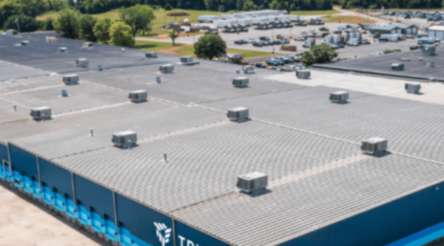A new deal plan for manufacturing – skills and how Australia can get them by Kerrie Clarke

Leadership and workplace skills are crucial to manufacturing success and Australia’s economic future. Kerrie Clarke has the keys to a skills revival in today’s contribution to @AuManufacturing’s campaign to crowd source a new deal plan for manufacturing post Covid-19.
A future for manufacturing will be built on skills – starting with the ones we already have!
While Canberra’s National COVID-19 Coordination Commission works on a long-term strategy to deliver a competitive manufacturing capability, a systematic approach to skill development and deployment should be central to its thinking. It would be good to see these items on the agenda:
1. A whole of industry workforce development plan
Skill development only makes sense when the new capabilities can be put to work in industry. A whole of industry workforce development plan that clarifies what work, what knowledge, what skills, to what extent, when and where they are needed, will help to shape a coordinated workforce development effort. We need more than lots of skilled individuals – we need a coherent, effective and well led workforce.
There are clear areas that Australian manufacturing can succeed in –value adding to our resources, innovation, advanced manufacturing and in high-value add niche markets to name a few. Planning a future for manufacturing will help secure interest, investment and ensure we design and develop the workforce we need for the future we want.
2. A focus on portable, transferrable skills
We have become siloed and too enterprise specific in our skill development. We have compromised our ability to deploy skills across the industry, and our workforce flexibility has diminished.
An agile, coherent workforce which is responsive to emerging social (and health), economic and environmental drivers, and able to be efficiently deployed, relies on transferrable skills. When workers hold underpinning knowledge about why things work the way they do, they are better equipped to apply their skills in a variety of contexts and contingencies, build on this knowledge, and drive innovation and sustainability.
A more ‘generic skill mindset’ would also help address ‘skill shortages’ experienced by small, niche manufacturers that are one of Australia’s great success stories. We need to ensure that our innovators are not hampered by limited capacity.
3. Engagement of under-utilised skills
There will be sectors of the economy that don’t recover from COVID-19, and as a result, skilled workers will find themselves unemployed. We cannot allow this waste.
Practices such as Recognition of Prior Learning (RPL) provide a head start in workforce development, and when coupled with transition programs and gap training, help build a more agile, responsive and mobile workforce. (There would be many workers skilled in sought after areas of logistics and supply chain management, that have been ‘let go’ recently from Qantas!)
Truth is, we are already performing many of the roles and activities we need for the future. We need to get better at recognising them, transferring them, upskilling and redeploying them to other areas of the economy.
4. A functional, reliable and effective VET system
The focus of VET in Australia has become confused in recent years and what used to be a world leading system has become fragmented and over-specialised in terms of delivery and unpredictable in its outcomes.
Occupational standards, skill recognition, career pathways, skill development and deployment are the essential domain of the VET sector, and these have never been more important in developing a world class manufacturing workforce. We need cohesion across all the elements of VET, and alignment to an industry-wide workforce development plan.
Training programs in manufacturing are often not sexy to market and are expensive to deliver – we have seen significant losses in manufacturing focused training since VET delivery was exposed to the market.
TAFE must be re-instated with the capacity to ensure high-quality programmes are available to industry. It is essential that public investment into skill development holds maximum value for all stakeholders.
5. Empowered enterprises that drive workforce development
The mantra ‘industry led’ is only as useful as the ability of industry to lead and the willingness of governments to let them.
Many enterprises, especially SMEs struggle to conduct meaningful skill need analysis and interact with training providers to target and deliver effective skilling. They need help from knowledgeable and trusted brokers that understand their sector and are not compromised by vested interests. They also need help in designing and implementing their own skilling initiatives and accessing government funding and supports (navigating different state and federal priorities is confusing of itself!).
Industry plays an important role in training outcomes, often providing learners with their only exposure to workplace expectations and cutting-edge technologies. Its involvement, through direct training, apprenticeships and traineeships, partnerships, project-based leadership and work placements, add enormous value to workforce development efforts and should be encouraged, from secondary through to post graduate learning.
6. Targeting of high-level skills to lead, inspire and innovate
Advanced manufacturing technologies, STEM and Industry 4 type skills are all important, as is design led thinking, innovation and sustainability.
However, without a concerted effort to improve Australia’s leadership and management capacity, we may struggle to navigate the volatile conditions the future promises or exploit the opportunities, even if we do have the technical skills.
7. A clear commitment to manufacturing in Australia.
It is hard to attract the kind of minds and passion the industry needs if its future appears to be hanging in the balance. Young people need to know about the well paid, engaging, worldly, problem solving, future proofing, scientific, highly skilled opportunities manufacturing offers, and the importance bestowed on it by committed governments and communities.
Manufacturing needs a rigorous, game changing reimagination campaign to launch it into the exciting future it can have!
Kerrie Clarke works in skill development and communication across manufacturing and was author of Manufacturing Skills Australia’s Environmental Scan for six years. Today she is a copy writer, coach and facilitator.
@AuManufacturing’s new deal plan for manufacturing is brought to you with the support of Bosch Australia Manufacturing Solutions

Subscribe to our free @AuManufacturing newsletter here.
Topics Analysis and Commentary
@aumanufacturing Sections
Analysis and Commentary Awards Defence Manufacturing News Podcast Technology Videos










